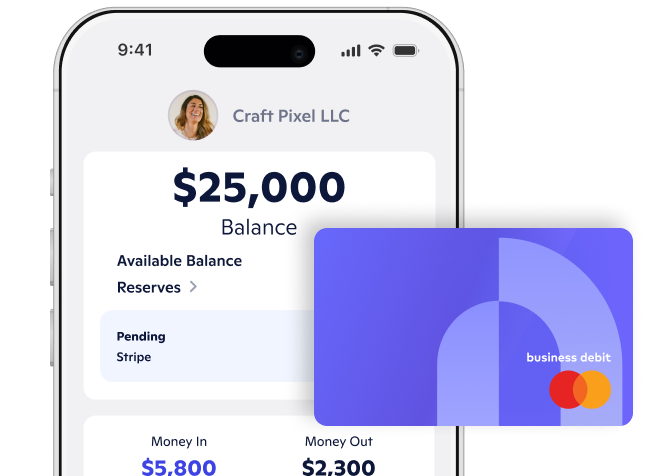
ash flow is the lifeblood of small businesses. As an owner, you may rely on it to cover unexpected expenses, pay employees, and take advantage of new business opportunities.
When capital gets tight, it can be challenging or nearly impossible to continue operations. While traditional small business loans may offer help, they can be difficult and time-consuming to get approved for.
But another type of financing, called a merchant cash advance (MCA), may offer an alternative that provides quicker access to cash.
If you’re looking for a small business lending solution, here are some answers to frequently asked questions about merchant cash advances and how to determine whether this unique financing is right for your business.
What is a Merchant Cash Advance (MCA)?
A merchant cash advance (MCA) is debt- and dilution-free, revenue-based financing. MCAs give your business up-front access to cash for a fee.
MCAs are growing in popularity among small businesses. According to a study published by the Federal Reserve, 10% of small businesses sought out a merchant cash advance in 2021. That figure was up from 8% in 2020.
How does a Merchant Cash Advance work?
The blueprint for a merchant cash advance is simple. Once a small business is approved, a lump sum is deposited into their business checking account. The business makes a monthly repayment for a set amount of time.
The payback amount will be greater than the advance amount because it consists of your advance total plus a percentage-based fee, known as a factor rate. This is similar to a loan’s interest rate. The factor rate is multiplied by your MCA amount – the resulting number is the total sum you'll need to repay. Factor rates generally range from 1.1 to 1.5, and vary based on a number of factors including your business’s industry, years in operation, financials, transactions, and credit score. Novo’s MCA factor rate falls between 1.1 to 1.5.
Why consider a small business Merchant Cash Advance?
Businesses may take advantage of an MCA to access capital for various expenses, including to:
- Fill inventory orders
- Upgrade equipment
- Recruit new employees
- Start a renovation project
- Invest in marketing
- Upgrade technology
- Improve short-term cash flow
- Cover short-term expenses
What are the benefits of a Merchant Cash Advance?
Small business cash advances offer several benefits compared to other cash flow solutions. Here are some of the reasons why this financing option might be right for you:
- No selling or loss of equity: You don’t have to sell equity in exchange for cash in an MCA transaction. This provides access to working capital without the risk of losing control of your business if you sell too much ownership.
- High approval rates: Small businesses face a loan approval rate just under 14% from large banks. However, MCAs have an approval rate of 84%.
- Quick turnaround: Approval for an MCA is typically quite fast (with some providers offering funding in 24 hours or less).
What are the drawbacks of a Merchant Cash Advance?
Here are some of the reasons you may not want to pursue an MCA for your business.
- High APRs: Compared to traditional business loans, MCAs usually have higher interest rates and fees, which can make them more expensive in the long run.
- Risk of default: MCAs have a short repayment cycle, requiring daily or weekly payments. If you’re unable to make your payments on schedule, you risk defaulting on your obligation.
What are the requirements for a Merchant Cash Advance?
MCA requirements vary by buyer, but one of the main factors considered is how long a business has been operational and its minimum monthly credit card sales.
Because of their flexibility, merchant cash advances are especially popular with small businesses with low or no credit history, fairly predictable revenues, or not enough assets to provide as loan collateral.
Alternatives to Merchant Cash Advances
Not sure a merchant cash advance is right for your business? Here are some loan alternatives.
Note that the specific terms of these loans vary based on a number of factors including but not limited to cash flow, creditworthiness, and business industry.
How long does it take to receive a Merchant Cash Advance?
The amount of time it takes to receive the money from an MCA depends on the buyer. But when going through an online platform, like Novo, the process is streamlined. This means funds can be deposited instantly upon approval.
In most scenarios, an MCA can put cash in a small business’s account faster than traditional bank loans or lines of credit.
How to apply for a Merchant Cash Advance
As long as you can prove your business meets the requirements, whether it’s how long you’ve been in business or your monthly revenues, you’re likely eligible for a merchant cash advance.
What really matters is making sure you understand the key terms of your agreement. These include:
- Total advance: In any MCA contract, the advance amount is the agreed-upon amount the buyer will give you as an advance. The advance can be less than, equal to, or much greater than your monthly sales.
- Factoring or discount rate: This is the amount you will pay back to the financial institution you are working with. Remember, the payback amount will be higher than the advance amount because it includes the original advance amount plus a discount (a percentage-based fee). In essence, you are paying a premium to have immediate access to your future revenues.
- Holdback: This is the daily revenue percentage withheld as payment for an MCA. These payments continue until the entire advance is paid in full. But not all MCAs have holdbacks; instead some may offer repayments on a fixed monthly schedule.
- Personal guarantees: Some MCA providers require a personal guarantee, which can put your personal assets at risk. If this is required, ensure you fully understand how this works.
Gain instant access to working capital with Novo Funding
If you’re seeking quick access to flexible working capital, a small business merchant cash advance could be the solution you’ve been looking for. And with Novo, obtaining a small business MCA couldn’t be easier.
Once approved, you’ll gain instant access to your advance funds. With Novo Funding, you are not obligated to draw on the full amount available to you, nor do you need to draw all at once (you can draw multiple times). And while many MCA providers require a daily or weekly repayment, Novo Funding only requires a monthly transfer. Novo Funding is currently available on an invite-only basis, but we are rapidly expanding availability!
If your business could benefit from a merchant cash advance, then create a Novo checking account to see if you’re eligible to apply!
Novo Platform Inc. strives to provide accurate information but cannot guarantee that this content is correct, complete, or up-to-date. This page is for informational purposes only and is not financial or legal advice nor an endorsement of any third-party products or services. All products and services are presented without warranty. Novo Platform Inc. does not provide any financial or legal advice, and you should consult your own financial, legal, or tax advisors.
%201.png)
.png)




